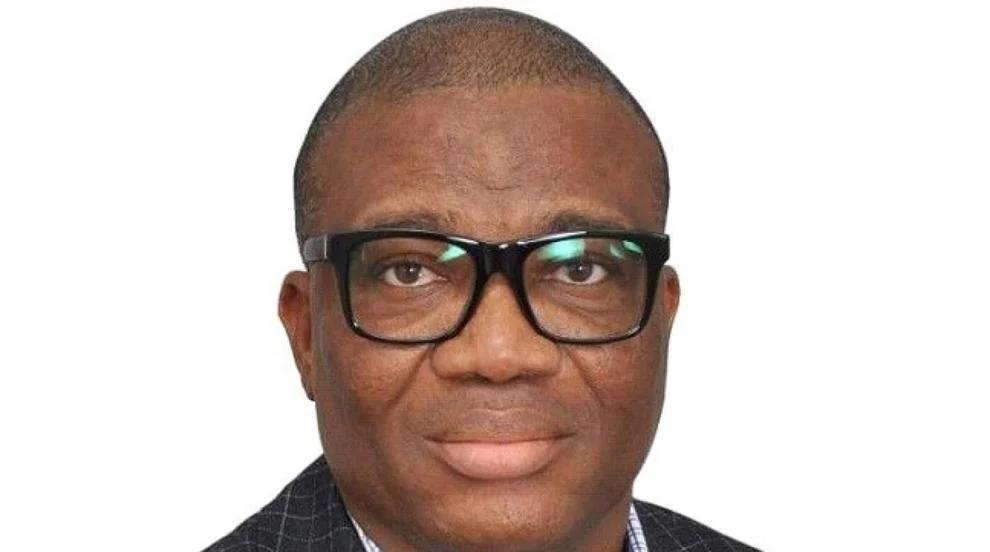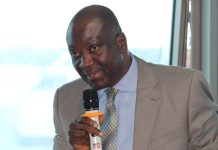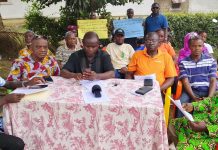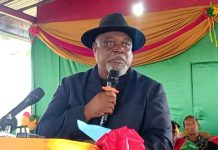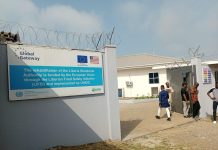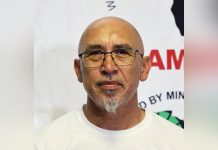Africa-Press – Liberia. Simeon Freeman, leader of the Movement for Progressive Change (MPC), delivered a thought-provoking presentation focused on drawing lessons from Nigeria’s economic strategies and addressing Liberia’s fiscal challenges.
In his deliberations when he appeared on the popular OK Morning Rush shoe recently, Freeman highlighted former Nigerian President Olusegun Obasanjo’s emphasis on enhancing domestic capacity and self-sufficiency in various sectors, such as cement, rice, and cocoa production.
By investing in key industries and utilizing government resources efficiently, Nigeria under Obasanjo’s leadership was able to achieve significant progress in reducing import dependency and fostering economic growth.
“When Obasanjo was president, he focused heavily on capacitating Nigerians and Nigerian businesses to be able to compete domestically and that helps,” Freeman said. Obasanjo and I had a conversation, and I said to him, how can start the importation of cement? Can we develop a large-scale domestic capacity? And he said yes.”
Nigeria was spending almost 20 billion dollars on rice imports but they tackled that and now Nigeria is heavily self-sufficient. Nigeria has added a lot of industries despite the power challenges they have added a lot of industries.
“So they are quite sufficient in many sectors, thus they have another aspect in the economy that is weighing the economy down,” the MPC political leader said. There is so much good we can learn from many of our compatriots across West Africa and the things that they have done and practice it in our country.”
Freeman underscored the importance of learning from regional counterparts and adopting successful economic practices to enhance Liberia’s economic resilience and development.
He emphasized the need for a strategic approach to resource utilization and effective revenue management within the Liberian government to address budgetary shortfalls and ensure sustainable economic progress.
Moreover, Freeman raised crucial questions about the efficacy of budgetary projections and resource identification by the Liberian legislature, expressing skepticism about the realization of additional funds and the potential impact of external factors, such as fluctuations in imports and international trade. The legislature, prior to the passage of the national budget, said it identified an additional 51 million dollars.
“I don’t know what market method they used to do that. The former legislature always identifies extra resources, but those resources were never realized for several reasons, 1. The legislature does not have a functional revenue office,” Freeman said. “If you have a functional revenue office, it means you have a least a team of ten facts expects that will have access to data and information. So if the LRA that is a dedicated infrastructure could not identify this 51 mission, then I don’t know how they did that.”
The legislature does not have a dedicated budget office.
“Under Madam Sirleaf, the entire period of her, the legislature said they have identified extra resources, so was the case with George Weah,” he said. “When were those resources realized? Never. We don’t have any performance history when the legislature said oh we have identified extra money, it led to a budget shortfall, that’s while under the former Amara Konneh, it led to many budget shortfalls, what he presented was what they knew.”
“So for them to say they have identified 51 million, then they are 51 million dollars more. Let’s see if this government will be able to collect that, there is going to be a shortfall.
Even with the 692 million, 40 million which was borrowed, I think 649 would been collected out of the budget. There is still no satiety that the money would have been collected for several reasons; Liberia is an import-dependent economy, so any movement in the export sector is going to affect us,” he said.
“In that budget, 2, 3 some-more million is for income and profit, so if businesses short down and businesses are not selling, you what is that going to mean? Also another one and something million for international trade, so if there is a dope in the frequencies of importation, it is going to affect the budget.”
Freeman called on the government to take the existing money and add value back to the economy, “but if they always coming and saying oh we find this money and the money is not realized then to what end. Whenever the legislature identified resources, those resources are to be realized,” he said.
“We have the situation that even with the 692 million dollars, we may not collect that money this year, there is a strong likelihood because like I said, we are heavily import dependent so any impact on extended trade, is going to affect our local projection.
So clearly that projection by the legislature is not realistic and I am not going to depend on that.”
By examining the underlying challenges facing Liberia’s import-dependent economy, Freeman highlighted the complexities involved in budget planning and revenue collection, calling for a more pragmatic and data-driven approach to financial management.
Overall, Freeman’s presentation evoked critical reflections on Liberia’s economic landscape, highlighting the importance of transparency, accountability, and strategic decision-making to navigate fiscal challenges and propel sustainable economic growth in the country. The insights shared by Freeman prompt a deeper examination of Liberia’s fiscal policies and the need for effective mechanisms to bolster economic stability and resilience in the face of external economic pressures.
For More News And Analysis About Liberia Follow Africa-Press

